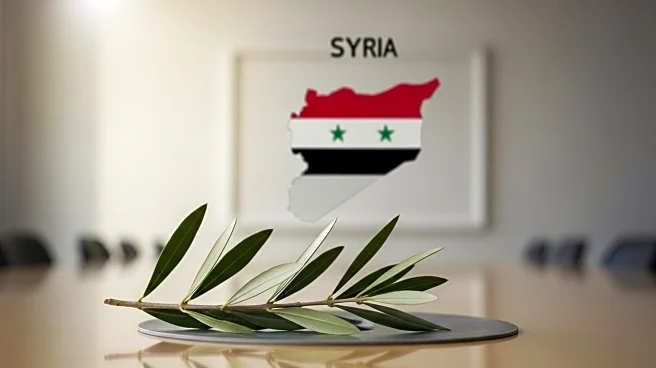What's Happening?
Syrian Foreign Minister Asaad al-Shaibani participated in a comprehensive discussion at the Council on Foreign Relations, addressing his transition from rebel to statesman and the future of religious minorities in Syria. The conversation also touched on the viability of peace with Israel. Additionally, Polish Deputy Prime Minister Radosław Sikorski discussed recent Russian incursions into NATO airspace and President Trump's changing stance on Ukraine. The episode concluded with Ruth Graham from The New York Times exploring the memorial service of Charlie Kirk and the intertwining of church and state within the Trump administration.
Why It's Important?
The discussions highlight significant geopolitical issues affecting international relations and domestic policies. Syria's future and its relationship with Israel are crucial for Middle Eastern stability. The incursions by Russia into NATO airspace raise concerns about European security and the potential for escalating tensions. The blending of church and state in the U.S. could influence political dynamics and voter behavior, potentially leading to shifts in policy and governance.
What's Next?
Future developments may include diplomatic efforts to stabilize Syria and improve relations with Israel. NATO may increase its vigilance and defense measures in response to Russian activities. In the U.S., the intersection of religion and politics could lead to legislative changes or influence upcoming elections, as stakeholders react to these evolving dynamics.
Beyond the Headlines
The intertwining of church and state raises ethical questions about the separation of religion from government functions, potentially affecting civil liberties and societal norms. The geopolitical tensions involving Russia and NATO could lead to long-term shifts in international alliances and defense strategies.









